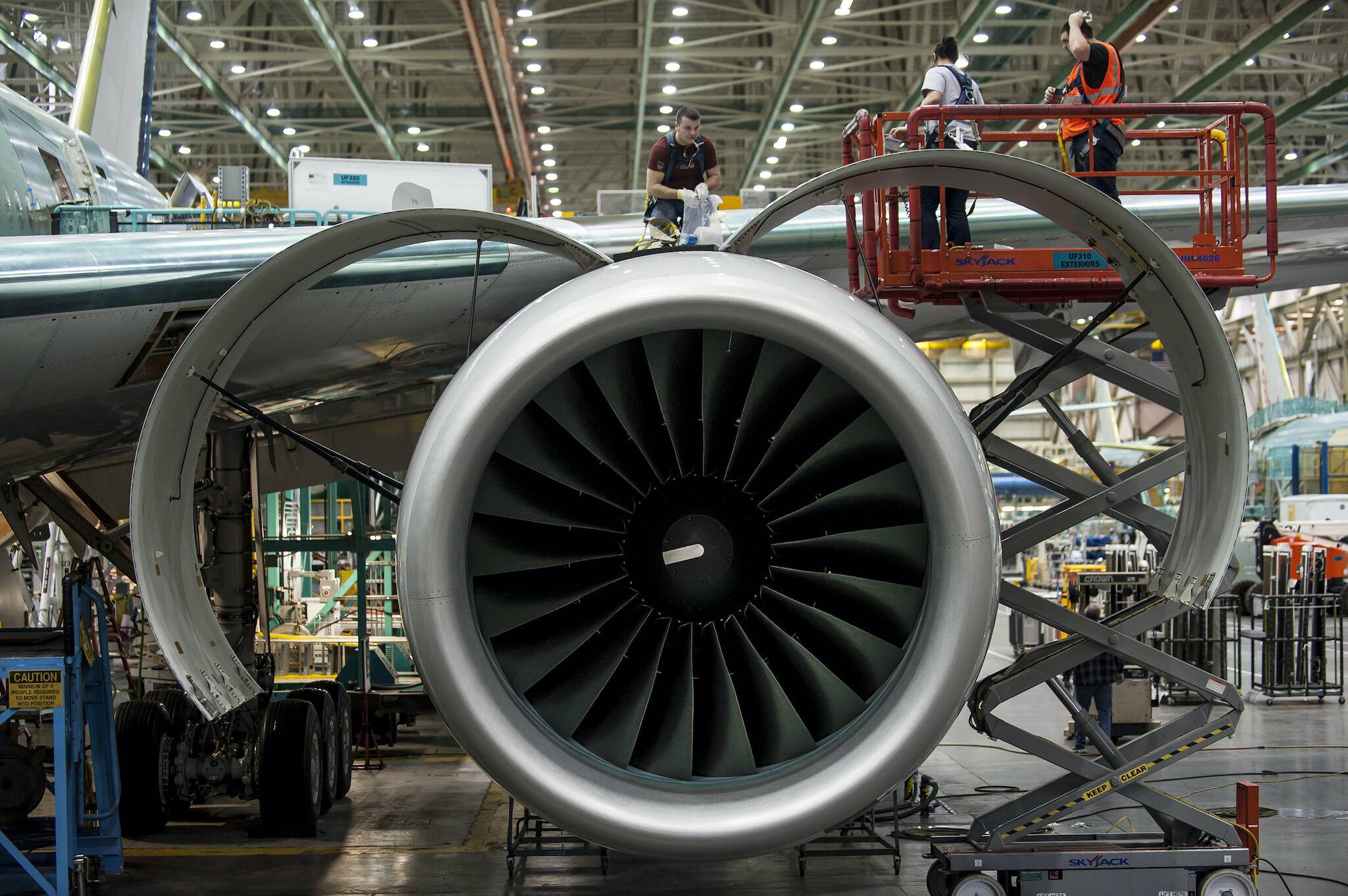EVERETT — Under new carbon emissions standards, Boeing would have been forced to cease production of its 767 Freighter in 2027.
The Federal Aviation Administration’s new fuel efficiency rules go into effect in 2028 and the freighter doesn’t meet the standards.
But Congress gave a lifeline to the twin-engine, wide-body airplane built in Everett.
As part of the FAA Reauthorization Act passed by Congress and signed into law last week by President Joe Biden, the 767 freighter received a five-year exemption from the new emissions standards.
The $105 billion bill, passed with overwhelming bipartisan support, funds the FAA for the next five years. The law establishes new rules regarding safety and consumer protections. It includes funding to hire more air traffic controllers, requires airplanes be equipped with 25-hour cockpit recording devices and raises the maximum civil penalties for airline consumer violations from $25,000 per violation to $75,000.
U.S. Sen. Maria Cantwell, who chairs the Commerce, Science and Transportation Committee, led the effort to pass the bill in the Senate.
“This landmark law is about reinforcing and reinvigorating the nation’s aviation system,” Cantwell, a Democrat from Washington, said in a statement. “Following flight disruptions, runway close calls and consumer frustrations, this law is set to deliver the safest, most reliable aviation system in the world.”
The law also contains a provision allowing Boeing to build the 767 model through 2033.
The 767 Freighter is a popular choice for domestic air cargo carriers including FedEx and UPS, according to aviation publication SimpleFlying.
The two cargo carriers “via surrogates joined Boeing in lobbying Congress for a reprieve from the Jan. 1, 2028, production deadline,” according to FreightWaves, an industry trade publication.
Although Boeing would not disclose how many people work on the 767 assembly line in Everett, the company said 35,000 people work at the Paine Field facility, which produces the 777, new 777X and 767 models, including the 767 military variant, the KC-46 tanker.
Ending production of the model in 2027 might have cost some Boeing workers their jobs and affected state and local aerospace firms that supply parts for the 767.
U.S. Rep. Rick Larsen, D-Everett, the ranking Democrat on the Transportation and Infrastructure Committee, said he heard from Boeing workers who supported an extension for the 767.
Larsen, a lead negotiator for the bill, visited Paine Field on Monday. The bill includes $4 billion for the Airport Improvement Program, which provides grants for the planning and development of public-use airports.
“The Machinists, the engineering union, the women and men who work at Boeing are the real drivers in bringing this to my attention,” Larsen said Monday. “In talking with the Machinists union and with Boeing, they needed a five-year extension to give them time to develop a new freighter.”
In a statement, Boeing said it “supports the civil aviation industry’s 2050 net zero target.”
“We are pursuing multiple paths to decarbonize aviation, including investing and partnering on fleet renewal, operational efficiencies, sustainable aviation fuels and advanced technologies,” the company added.
“As we look ahead to future medium-widebody freighter options for our customers, the 767F continues to be the most efficient mid-size freighter available,” the statement continued.
According to the FAA, civil aircraft are responsible for 9% of domestic transportation emissions and 2% of total U.S. carbon pollution. The agency’s new emissions rule requires airplane makers to equip the large airplanes it manufactures after 2028 with fuel-efficient technologies.
Examples of commercial airplanes that will be required to meet the standards include the Boeing 777X and newly built versions of the Boeing 787 and the Airbus A330neo, as well as business jets such as the Cessna Citation, the FAA reported.
Since its certification in 1982, Boeing has delivered more than 1,300 of the 767 airplanes, including 100 freighters. Another 99 are on order, including the freighter variants and the 767-2C, which is the platform for the KC-46 military tanker, Boeing said.
Boeing stopped making the passenger version of the 767 jet in 2014. Boeing said it currently produces three 767 planes per month.
Janice Podsada: 425-339-3097; jpodsada@heraldnet.com;
Talk to us
> Give us your news tips.
> Send us a letter to the editor.
> More Herald contact information.

























